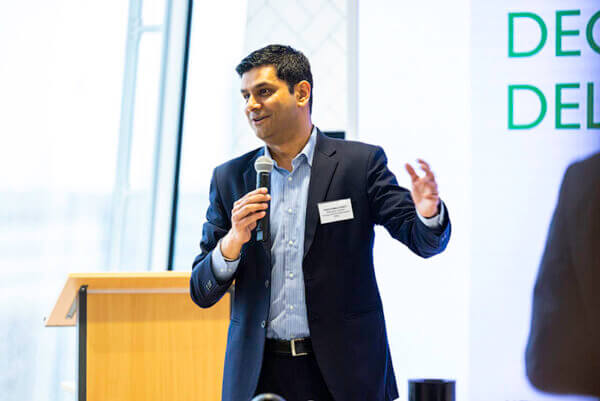Mitie releases e-book to tackle biggest challenges to reach net zero
- Mitie’s latest e-book explores the most common challenges faced by organisations looking to reach net zero and offers solutions on how to tackle them effectively
- With the race to net zero well underway, avoiding these common pitfalls is key to implementing successful, speedy and cost-effective decarbonisation plans
- Mitie’s own net zero roadmap will see the business decarbonise all 70+ sites, and with just eight to go, it will have an entirely net zero estate by its 2025 deadline
Mitie’s latest e-book, released today, tackles the five biggest challenges to reaching net zero, and shares insights on how organisations can overcome each one.
As the UK’s leading facilities management company, Mitie’s energy management, engineering, and sustainability expertise has saved over 353,000 tonnes of CO2 for British organisations in the last decade. In that time, five common obstacles have emerged, which are preventing the successful execution of decarbonisation initiatives at scale.
Cost remains a key barrier and is one of the reasons many organisations are struggling to get their decision makers on board with decarbonisation initiatives. For others, conflicting interests across the organisation presents a real challenge.
Mitie’s insights paper, titled ‘How to succeed at decarbonisation: Help your organisation overcome the five biggest challenges to net zero’ considers the following obstacles:
Challenge one: affordability
In the current economic climate, organisations are understandably cautious with their finances, but investing in decarbonisation solutions needn’t be a financial burden. As technology continues to mature, some solutions, such as solar PV, have seen their costs decline and paybacks improve significantly, as companies tackle increasing energy costs. In addition, there can be significant operational cost savings associated with decarbonisation investments – particularly those that will have a direct impact on an organisation’s energy bills.
There are numerous financing and funding options for organisations looking to invest in decarbonisation solutions, which make these investments increasingly affordable. In fact, the e-book recommends that the first step for any organisation is to optimise what they already have. Starting off with smaller modifications, such as upgrading to energy efficient lighting, adjusting heating controls and turning off services in less-used areas, can have huge impacts on an organisation’s overall emissions and generate big savings.
Challenge two: credibility
For some organisations the biggest challenge remains building a compelling business case for their key decision makers, who may not always fully appreciate the value of decarbonisation investments. Knowing how to present that argument can be key to convincing decision makers to invest in net zero. The best approach is to present both the positives of taking action and the potential consequences of inaction. Leaving decarbonisation initiatives to a later date may incur legislative non-compliance, reputational damage, and huge capital investments, so it is worth taking the time, effort and investment now. In addition, there are plenty of positive aspects to support a business case, such as improved energy security and resilience, which takes on additional significance given the current energy climate, as well as the opportunity to develop new revenue streams. Ultimately, the sooner decision makers are on board the better, as demand for some decarbonisation technologies is already outstripping supply as the benefits of transitioning to net zero are becoming more apparent.
Challenge three: unity
One of the biggest challenges is juggling the competing agendas of different stakeholders within organisations. Although it can be difficult, everyone in an organisation needs to understand the importance of decarbonisation and pull in the same direction. While everyone has their own KPIs and areas of focus, decarbonisation is a unifying mission that all stakeholders can buy into. The trick is finding the common ground – and showing everyone how these investments contribute to their individual goals, as well as the greater good.
Challenge four: longevity
In order to maximise the value from investing in decarbonisation efforts, organisations need to plan a long-term approach. It is crucial for any organisation to begin with a detailed understanding of its portfolio, which is why gaining a complete picture of its estate is the best place to start. By doing things in small steps, organisations can then create a roadmap that details the appropriate measures to take over the following months and years, and prioritise these based on factors like cost, complexity, and results. Overall, it is important that organisations don’t throw all their investments into brand new solutions and start by managing what they have already got more effectively.
Challenge five: clarity
In a crowded marketplace, choosing the best-fit partners to deliver on an organisation’s decarbonisation plans can be overwhelming and unnecessarily complex. Often, businesses hire several consultants, contractors, and maintenance teams from different companies, creating additional complexity if the communication is not crystal clear between different parties. An alternative solution is to identify a single partner who can provide a comprehensive, end-to-end service, from assessing the energy use of an estate and identifying inefficiencies, to choosing and installing the right solutions. When choosing a provider, it is also important to look at their track record and ask questions like: how long have they been in the industry; do they have all the right accreditations; have they worked in environments like yours before; and what have they helped others to achieve?
Mike Sewell, Plan Zero Director, Mitie, said:
“There’s never been a more intense focus on decarbonisation, yet we often see our clients face the same barriers to implementing their net zero plans. Based on the experience we’ve gained over the past decade, this e-book captures the most important elements to consider, and helpful guidance to organisations on their decarbonisation journey. With the race to net zero well underway, time is certainly of the essence, making it crucial for organisations to overcome these common barriers.”
The full e-book is free to download here, including additional tips, success stories and guidance from Mitie experts.
Read next
Mitie named ‘Fleet of the Year’ at the Fleet News Awards
Mitie has been named ‘Fleet of the Year (more than 1,000 vehicles)’ at this year’s Fleet News Awards. This is continuous recognition for its industry leading fleet, having won the title three years in…

Four important lessons on the road to decarbonisation
Accelerating decarbonisation plans was the hot topic when representatives from the public and private sectors met with sustainability experts at our breakfast briefing. How can organisations successfully navigate the path to net zero? This…

Installing solar panels on your commercial building roof? Read on
Concerns over the security of supply, rising costs, and the need to decarbonise environments have quickly and permanently transformed our energy landscape. In the last year it has become increasingly clear that the way…
 Skip to content
Skip to content